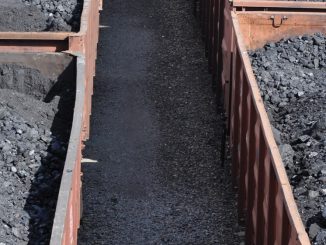
An important concern in the power sector has been the poor quality of coal. Speaking at a workshop organised by Coal India Limited (CIL) on coal quality, Piyush Goyal, minister of state (independent charge) for power, coal and renewable energy and mines, stressed on the need for CIL to improve coal quality.. Excerpts…
Having achieved a significant milestone of adequate coal quantity, we must now urgently focus on quality. I must compliment both the customers and the suppliers for what has happened in the past two-and-a-half to three years. Station heat rates have improved significantly. There has been an 8 per cent reduction in coal consumption per unit of electricity generated. Specific coal consumption has come down to 0.63 kg per kWh from 0.69 kg per kWh in 2013-14. This is a significant milestone in India’s journey towards affordable 24×7 power for all.
About 61 plants or nearly two-thirds of the power plants were starved of coal when the Modi government came to power in 2014. Today, I believe there is none, except for one private plant in Vizag where the issue is that of logistics. The fact that customers have confidence that they can get coal when they want it has helped them bring down their coal stocks from 27-28 days to 19 days. We are extremely proud of CIL, its subsidiaries and Singareni Collieries Company Limited (SCCL).
We have also seen coal imports coming down by nearly Rs 250 billion. This could become even better if earlier governments had not planned power plants based on imported coal. I am delighted that after persistent efforts, Tamil Nadu has expressed its willingness to now set up the ultra mega power plant at Cheyyur based on domestic coal instead of imported coal as planned earlier.
While setting the benchmark of 1 billion tonne production in 2014, I had appealed to the senior CIL management that the company should not be looked upon as a lethargic organisation that is overcharging. Today, NTPC Limited can take pride in the fact that it is one of the most efficiently run public sector units. This is what CIL will have to prepare itself for. We are fast opening up this sector to more competition. A number of mines that were auctioned are opening up. Gradually, more private miners are coming into the field. Gone are the days when one could provide coal of bad quality or coal that was over-sized or at any price.
CIL, in the past three years, has not increased prices effectively. A price rationalisation exercise was undertaken only once, which was more to bring down the cost of higher grades of coal, and make it competitive. Earlier, the pricing of domestic coal was like a parabolic curve between the lower grades of coal and the higher grades. We are trying to bring some linearity to it. In this way, consumers will be encouraged to buy higher grades of coal, which will reduce their freight cost and pollution. However, price increases are not the solution to efficiency. We cannot expect consumers to pay for bad quality coal or lack of efficiency in operations. The working of each mine needs to be reviewed independently. We should know whether every mine has a value proposition. We will have to look at improving the productivity of our employees and our workers, including contract workers.
The coal ministry has engaged agencies for a fresh study on coal grades. They have completed the sampling and analysis of coal and declared revised grades on March 24, which have been adopted from April 1. The figures are quite mindboggling – about 1,961 samples were collected from CIL, 1,742 from SCCL, 219 both from the mine and the dispatch points, which has probably been done for the first time. Of CIL’s producing mines, there was a grade slippage in 46 per cent of the mines, and 177 mines have been reclassified. Three years ago, when consumers were billed for such coal, you could get away with it. Today, you cannot get away with it because there is a third-party sampling mechanism in place. We have to get over this hump on quality, quality inspections and quality slippages. Consumers should get what they pay for.
Also, coal, if kept for a long time, depletes in value, which may cause grade slippages. So there has to be a proper system of stocking. We will also need to have systems in place to check corruption within the organisation and ensure that a whistleblower mechanism is in place to address complaints of coal grade slippages. All the stakeholders need to take their job as a mission to serve the country.



